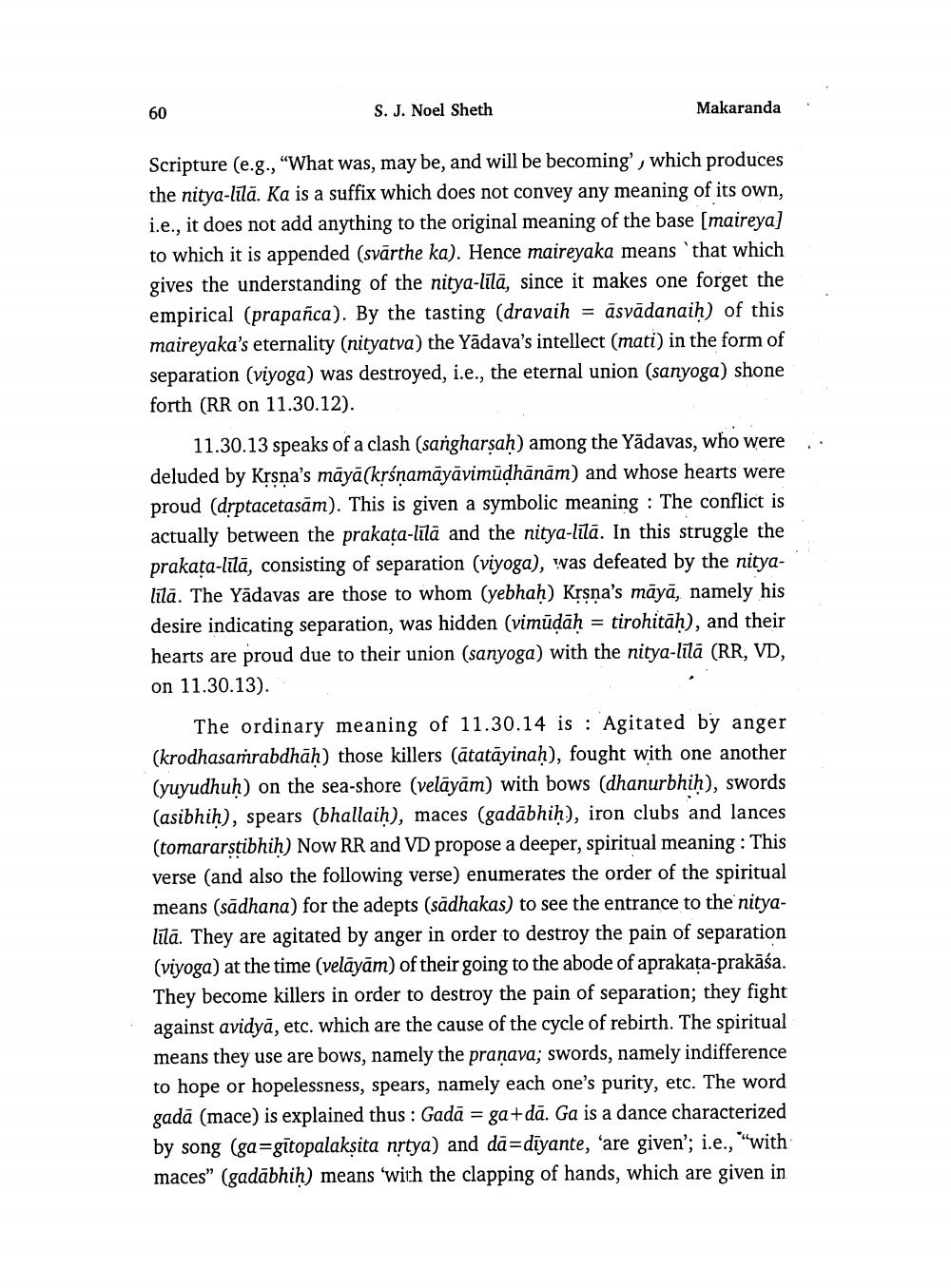________________
60
S. J. Noel Sheth
Makaranda
:
Scripture (e.g., "What was, may be, and will be becoming' which produces the nitya-līlā. Ka is a suffix which does not convey any meaning of its own, i.e., it does not add anything to the original meaning of the base (maireya) to which it is appended (svārthe ka). Hence maireyaka means that which gives the understanding of the nitya-līlā, since it makes one forget the empirical (prapañca). By the tasting (dravaih = āsvādanaih) of this maireyaka's eternality (nityatva) the Yādava's intellect (mati) in the form of separation (viyoga) was destroyed, i.e., the eternal union (sanyoga) shone forth (RR on 11.30.12).
11.30.13 speaks of a clash (sangharşah) among the Yādavas, who were ; deluded by Krsna's māyā(kríņamāyāvimūdhānām) and whose hearts were proud (drptacetasām). This is given a symbolic meaning : The conflict is actually between the prakața-līlā and the nitya-lītā. In this struggle the prakața-līlā, consisting of separation (viyoga), was defeated by the nityalīlā. The Yādavas are those to whom (yebhaḥ) Krsna's māyā, namely his desire indicating separation, was hidden (vimūļāḥ = tirohitāh), and their hearts are proud due to their union (sanyoga) with the nitya-līlā (RR, VD, on 11.30.13).
Th.
The ordinary meaning of 11.30.14 is : Agitated by anger (krodhasaṁrabdhāh) those killers (ātatāyinah), fought with one another (yuyudhuh) on the sea-shore (velāyām) with bows (dhanurbhih), swords (asibhih), spears (bhallaih), maces (gadābhih), iron clubs and lances (tomararstibhih) Now RR and VD propose a deeper, spiritual meaning: This verse (and also the following verse) enumerates the order of the spiritual means (sādhana) for the adepts (sādhakas) to see the entrance to the nityalīlā. They are agitated by anger in order to destroy the pain of separation (viyoga) at the time (velāyām) of their going to the abode of aprakața-prakāśa. They become killers in order to destroy the pain of separation; they fight against avidyā, etc. which are the cause of the cycle of rebirth. The spiritual means they use are bows, namely the praṇava; swords, namely indifference to hope or hopelessness, spears, namely each one's purity, etc. The word gadā (mace) is explained thus : Gadā = ga+dā. Ga is a dance characterized by song (ga=gītopalakṣita nrtya) and dā=dīyante, ‘are given’; i.e., ""with maces" (gadābhih) means 'with the clapping of hands, which are given in




